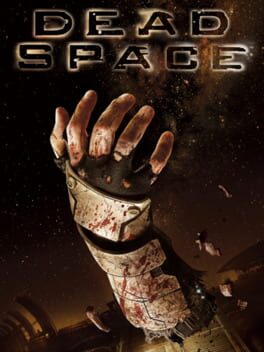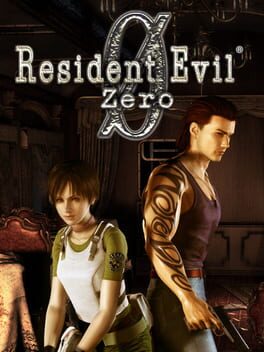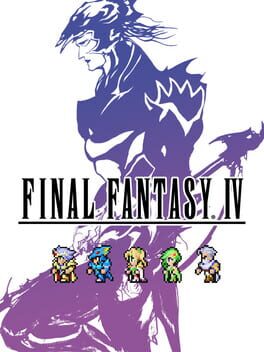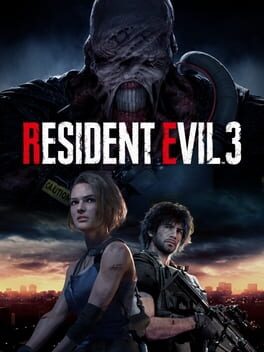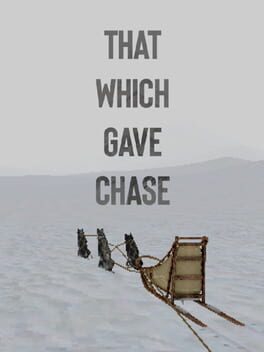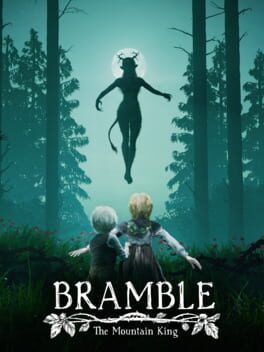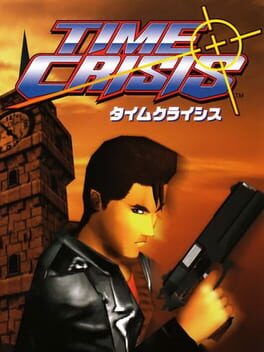Weepboop
BACKER
629 Reviews liked by Weepboop
Dead Space
2008
Why did I stop playing this back when it first came out? Dead Space is a phenomenal game. Not only is it a terrifying experience with its setting and tense atmosphere. It is also an amazing shooter with satisfying gameplay and unique mechanics.
Interested to see what the remake adds to Dead Space because I already consider the original a masterpiece. A must play for gamers.
Interested to see what the remake adds to Dead Space because I already consider the original a masterpiece. A must play for gamers.
Resident Evil Zero
2002
At its best, RE0 is an enjoyable game with challenging puzzles and stunning visuals that match the beauty of the RE1 Remake. At its worst, it is an absolute slog with constant backtracking and a frustrating inventory system.
You can't talk about Resident Evil 0 without bringing up its biggest issue. It's lack of item boxes. I must admit it didn't bother me to begin with. However, the more I played, the more annoying I found it. Having to constantly return to your designated room (or dumping ground) to rummage through the pile of crap you've left on the floor gets old very quickly. Controlling 2 characters doesn't solve this issue either. The many herbs, ammo, weapons (some taking up 2 slots) and key items you find while exploring can be overwhelming and as a result, RE0 can feel tedious instead of tense.
I wouldn't say RE0 is a bad game. It's just held back massively by its faults. It also probably didn't help that this was released between 2 masterpieces. The removal of key features of previous titles will unfortunately forever tarnish RE0's reputation. Even as a huge fan of the classic RE games, I can't see myself returning to RE0 anytime soon.
You can't talk about Resident Evil 0 without bringing up its biggest issue. It's lack of item boxes. I must admit it didn't bother me to begin with. However, the more I played, the more annoying I found it. Having to constantly return to your designated room (or dumping ground) to rummage through the pile of crap you've left on the floor gets old very quickly. Controlling 2 characters doesn't solve this issue either. The many herbs, ammo, weapons (some taking up 2 slots) and key items you find while exploring can be overwhelming and as a result, RE0 can feel tedious instead of tense.
I wouldn't say RE0 is a bad game. It's just held back massively by its faults. It also probably didn't help that this was released between 2 masterpieces. The removal of key features of previous titles will unfortunately forever tarnish RE0's reputation. Even as a huge fan of the classic RE games, I can't see myself returning to RE0 anytime soon.
Dark Souls III
2016
Dark Souls III
2016
Dark Souls III
2016
Final Fantasy IV
2021
My first ever Final Fantasy that I’ve played start to finish, and what a solid start!
I really enjoyed this game. The cast of characters grew on me a lot over the course of the game, and by the end I was a big fan of (almost) all of them. The music was gorgeous, and the combat + runtime didn’t overstay it’s welcome.
I did feel like the game was a bit rushed—to my knowledge this was the first FF game where they tried to focus on more of a fleshed out plot, but that didn’t stop it from feeling a bit all over the place.
All in all though, I’m glad I decided to start my FF journey with FF4 PR, and I’m eager to jump into FF5 next!
I really enjoyed this game. The cast of characters grew on me a lot over the course of the game, and by the end I was a big fan of (almost) all of them. The music was gorgeous, and the combat + runtime didn’t overstay it’s welcome.
I did feel like the game was a bit rushed—to my knowledge this was the first FF game where they tried to focus on more of a fleshed out plot, but that didn’t stop it from feeling a bit all over the place.
All in all though, I’m glad I decided to start my FF journey with FF4 PR, and I’m eager to jump into FF5 next!
Resident Evil 4
2005
I love this game, RE4 is the game that got me started on the series and playing it again now with the PS1 entries under my belt makes me like it even more than I did the first time around.
Big part of what makes RE4 so effective is that the game does away with the intentional limitations of the older entries and molds them into being the best parts of the game. For example, the combat, which you usually wanted to avoid in the past games is instead encouraged here with item drops and is the highlight of the game. It's just so damn fun, the random ammo drops mean you'll constantly have to switch up what weapon you're using so it's constantly engaging and transitioning to melee options like the knife is seamless here. Also, suplexing enemies so hard their head explodes will never get old. The game is extremely linear but this works to the game's benefit rather than detriment because the pacing here is perfect. The game is constantly changing up the terrain and enemy types so there's rarely if ever a dull moment in the 16 hours that this game goes on for, not even in the military base. There's also the attache case, inventory was always clunky in the past games but here it's one of the best parts of the game. There's just something so enjoyable about personalising your inventory so items are placed specifically where you want them to be and fiddling around with it so items are stacked neatly scratches an itch I never knew I had.
Obviously the game is heavier on the action than any of the prior games but every mainline resi game upped the action from the previous one so I view RE4s direction to just be a natural progression of that, rather than some betrayal of the series' roots. Horror atleast still plays a role here like in the sections with Verdugo, Regenerators and the UM3 bossfight and for me they're some of the most memorable parts of the game so I appreciate the effort to balance the horror with the action even if the end result feels pretty skewered towards the latter. What I don't really appreciate is the story, I like the village section's tone but once you enter the castle it turns into hammy nonsense and while it is pretty funny and entertaining, it feels like it's from a completely different series and doesn't do much for me, but it's not like I play these games for the story anyway.
Also, I don't know how to segway into this but mercenaries mode is fucking awesome. All the characters feel distinct from eachother and it's insanely fun to experiment with what character does best at a specific stage. Wesker and Hunk are probably my favourites since sending enemies flying across the screen is about as fun as it sounds and getting multiple kills is the easiest with Hunk since all he has is the TMP. I usually don't spend much time with side modes like this in games but I love RE4s gameplay so much that I had to make an exception here.
Prior to replaying the game, I was feeling pretty burnt out on the series and I was thinking about playing something else, but the moment I booted RE4 up, I could not put the controller down. Time just flies by when I play this game, it's honestly magical, it's my favourite RE game and one of my favourite games ever, easily.
Big part of what makes RE4 so effective is that the game does away with the intentional limitations of the older entries and molds them into being the best parts of the game. For example, the combat, which you usually wanted to avoid in the past games is instead encouraged here with item drops and is the highlight of the game. It's just so damn fun, the random ammo drops mean you'll constantly have to switch up what weapon you're using so it's constantly engaging and transitioning to melee options like the knife is seamless here. Also, suplexing enemies so hard their head explodes will never get old. The game is extremely linear but this works to the game's benefit rather than detriment because the pacing here is perfect. The game is constantly changing up the terrain and enemy types so there's rarely if ever a dull moment in the 16 hours that this game goes on for, not even in the military base. There's also the attache case, inventory was always clunky in the past games but here it's one of the best parts of the game. There's just something so enjoyable about personalising your inventory so items are placed specifically where you want them to be and fiddling around with it so items are stacked neatly scratches an itch I never knew I had.
Obviously the game is heavier on the action than any of the prior games but every mainline resi game upped the action from the previous one so I view RE4s direction to just be a natural progression of that, rather than some betrayal of the series' roots. Horror atleast still plays a role here like in the sections with Verdugo, Regenerators and the UM3 bossfight and for me they're some of the most memorable parts of the game so I appreciate the effort to balance the horror with the action even if the end result feels pretty skewered towards the latter. What I don't really appreciate is the story, I like the village section's tone but once you enter the castle it turns into hammy nonsense and while it is pretty funny and entertaining, it feels like it's from a completely different series and doesn't do much for me, but it's not like I play these games for the story anyway.
Also, I don't know how to segway into this but mercenaries mode is fucking awesome. All the characters feel distinct from eachother and it's insanely fun to experiment with what character does best at a specific stage. Wesker and Hunk are probably my favourites since sending enemies flying across the screen is about as fun as it sounds and getting multiple kills is the easiest with Hunk since all he has is the TMP. I usually don't spend much time with side modes like this in games but I love RE4s gameplay so much that I had to make an exception here.
Prior to replaying the game, I was feeling pretty burnt out on the series and I was thinking about playing something else, but the moment I booted RE4 up, I could not put the controller down. Time just flies by when I play this game, it's honestly magical, it's my favourite RE game and one of my favourite games ever, easily.
Resident Evil 3
2020
You ever liked a game that you were also really disappointed by?
That basically sums up my experience when playing RE3 Remake. I remember seeing this game first get announced and I was unbelievably hyped, but then the reviews came in and everyone said the game was a huge letdown so my expectations going into it could not be lower.
I enjoyed it decently enough but the game did nothing that I hoped it would do. I was hoping it would make the cast more interesting, maybe give Brad and Jill more time spent together so Brad's death hits harder, Nope. Maybe make Nicholai more interesting but no, he still just exists and is overshadowed by Nemesis. The only character that's improved here is Carlos and to be fair, his interactions with Jill are the highlight of the game for me and I actually really grew attached to them by the end of the game unlike in the original. His sections are also pretty fun since he can actually defend himself unlike Sherry or Ada and seeing how Marvin got bit and exploring the RPD before the events of RE2 take place was also really cool to see. But that brings me to another issue I have with the game, they remove areas that were unique to RE3 like the Clock Tower, Park and Dead Factory in favour of adding a Sewer and an RPD section, both of which were already in RE2. This ends up making the game feel less like an RE3 Remake and more like RE2 Remake Lite, with a slightly more aggressive Mr X.
The game just lacks identity and a big reason for that is that the element that should've got the most attention barely gets any. Nemesis sucks here. In the PS1 Original, you really feel like they did as much with him as was possible with the hardware, here he basically only shows up in cutscenes and any surprise factor he had in the OG is completely absent here. He should've been Mr.X on steroids but instead he's just a poor mans version. His bossfights are some of the most fun ones in the series though but still, relegating a character that should've been re-introduced as an icon of survival horror to basically having the same role as Birkin in the 2 Remake is a crying shame.
To sum up, RE1R is the type of remake that replaces the original, RE2R is the type of remake that sits alongside the original and RE3R is the type of remake that makes you appreciate the original way more. I liked it decently enough for the 5 hours that I spent on it and I'm giving it a 7 because I went into it with basically no expectations but realistically, this is probably a 5 or 6 at best.
That basically sums up my experience when playing RE3 Remake. I remember seeing this game first get announced and I was unbelievably hyped, but then the reviews came in and everyone said the game was a huge letdown so my expectations going into it could not be lower.
I enjoyed it decently enough but the game did nothing that I hoped it would do. I was hoping it would make the cast more interesting, maybe give Brad and Jill more time spent together so Brad's death hits harder, Nope. Maybe make Nicholai more interesting but no, he still just exists and is overshadowed by Nemesis. The only character that's improved here is Carlos and to be fair, his interactions with Jill are the highlight of the game for me and I actually really grew attached to them by the end of the game unlike in the original. His sections are also pretty fun since he can actually defend himself unlike Sherry or Ada and seeing how Marvin got bit and exploring the RPD before the events of RE2 take place was also really cool to see. But that brings me to another issue I have with the game, they remove areas that were unique to RE3 like the Clock Tower, Park and Dead Factory in favour of adding a Sewer and an RPD section, both of which were already in RE2. This ends up making the game feel less like an RE3 Remake and more like RE2 Remake Lite, with a slightly more aggressive Mr X.
The game just lacks identity and a big reason for that is that the element that should've got the most attention barely gets any. Nemesis sucks here. In the PS1 Original, you really feel like they did as much with him as was possible with the hardware, here he basically only shows up in cutscenes and any surprise factor he had in the OG is completely absent here. He should've been Mr.X on steroids but instead he's just a poor mans version. His bossfights are some of the most fun ones in the series though but still, relegating a character that should've been re-introduced as an icon of survival horror to basically having the same role as Birkin in the 2 Remake is a crying shame.
To sum up, RE1R is the type of remake that replaces the original, RE2R is the type of remake that sits alongside the original and RE3R is the type of remake that makes you appreciate the original way more. I liked it decently enough for the 5 hours that I spent on it and I'm giving it a 7 because I went into it with basically no expectations but realistically, this is probably a 5 or 6 at best.
I'm tired after this laborious journey so I'm gonna break out my secret weapon: the bulleted pros/cons list review. Many of these points are in comparison to other Dark Souls games.
Cons
- Bugs! and lots of them
- Feels less mechanically sound, hitboxes are all over the place
- Enemy AI is consistently frustrating
- Early game is relatively easy and unmemorable
- Too long, felt like a slog in the last third
- Multiplayer is annoying
- There isn't a little preview image when you pick up items (yes this deserves to be a bullet fuck you)
Pros
- NG+ system is very interesting including the ability to localize NG+ difficulty to certain areas and respawn bosses
- Some late game areas are sick
- All 3 DLCs are solid with interesting areas and great bosses
- Majula theme
Cons
- Bugs! and lots of them
- Feels less mechanically sound, hitboxes are all over the place
- Enemy AI is consistently frustrating
- Early game is relatively easy and unmemorable
- Too long, felt like a slog in the last third
- Multiplayer is annoying
- There isn't a little preview image when you pick up items (yes this deserves to be a bullet fuck you)
Pros
- NG+ system is very interesting including the ability to localize NG+ difficulty to certain areas and respawn bosses
- Some late game areas are sick
- All 3 DLCs are solid with interesting areas and great bosses
- Majula theme
When I think of Dark Souls, the first thing that comes to mind is NOT a sleepy coastal town with a gorgeous amber sunset. But it works.
From the Ico style windmill tower of Earthen Peak to the evil horrible sickening bioluminescent poison tunnels of the Black Gulch, I think Too Dark Souls might have the best aesthetic of the three Dark Souls games. It at the very least has my favorite structure design (the aforementioned Earthen Peak).
Unfortunately it also has a few areas I would consider extremely tedious. As I killed the millionth generic knight in the Bowser’s Castle area, I would think “How many times do we have to teach you this lesson, old man?” Luckily, like in Elden Ring, I could just leave and come back later.
Getting gud is no longer as much of an issue (this is my fourth FromSoft game this year and in general), but getting patient was more important than ever. No matter how hard the game would try to beat me down with a boring section, it would surprise me with some incredible new area, interesting surprise encounter, or some kind of gross frog skeleton boss.
Now, I’ve heard some trash talk about this game, and I get it. I’d say it’s probably my least favorite FromSoft game in terms of pure gameplay and actual map layout. Not a huge fan of the hollowing system. Every enemy is a knight. Different director. The community messages were at an all time low in terms of helpfulness. Invasions kinda just make me roll my eyes.
But I’m all about vibes, and this game has vibes in spades. The part where they zoom in when you cross that bridge? Amazing. Getting rekt by weird little badgers in the hub area? Incredible. All I want are those delicious idiosyncrasies. I literally laughed out loud when the only way out of that one bonfire was through a pool of poison. Unforgettable experience.
I have now completed the Dark Souls trilogy. Time for Sekiro.
From the Ico style windmill tower of Earthen Peak to the evil horrible sickening bioluminescent poison tunnels of the Black Gulch, I think Too Dark Souls might have the best aesthetic of the three Dark Souls games. It at the very least has my favorite structure design (the aforementioned Earthen Peak).
Unfortunately it also has a few areas I would consider extremely tedious. As I killed the millionth generic knight in the Bowser’s Castle area, I would think “How many times do we have to teach you this lesson, old man?” Luckily, like in Elden Ring, I could just leave and come back later.
Getting gud is no longer as much of an issue (this is my fourth FromSoft game this year and in general), but getting patient was more important than ever. No matter how hard the game would try to beat me down with a boring section, it would surprise me with some incredible new area, interesting surprise encounter, or some kind of gross frog skeleton boss.
Now, I’ve heard some trash talk about this game, and I get it. I’d say it’s probably my least favorite FromSoft game in terms of pure gameplay and actual map layout. Not a huge fan of the hollowing system. Every enemy is a knight. Different director. The community messages were at an all time low in terms of helpfulness. Invasions kinda just make me roll my eyes.
But I’m all about vibes, and this game has vibes in spades. The part where they zoom in when you cross that bridge? Amazing. Getting rekt by weird little badgers in the hub area? Incredible. All I want are those delicious idiosyncrasies. I literally laughed out loud when the only way out of that one bonfire was through a pool of poison. Unforgettable experience.
I have now completed the Dark Souls trilogy. Time for Sekiro.
The final stretch of Dark Souls II is so effective from the perspective of storytelling, that I regret not documenting my earlier frustrations in better detail. True, even doing so I would have very little to contribute beyond the laundry list of complaints already shared by anyone who remembers the game: enemy and level designs are squat and very Maximo: Ghosts to Glory, the combat is as loose and weightless as an N64 Zelda title (but it expects a Bloodborne-like performance from you), the success of Demon's and Dark Souls gives it free license for scattershot cruelty, the total openness combined with fragmented levels (and uneven difficulties within) and steep punishment for failure has it even more bewildering than the first time you started up Demon's Souls; a problem ironed out by its follow up. But then, and here's the thing, acknowledging that last point is the first step in appreciating a future where these things continued to push for total emotional/physical/ludic bewilderment over what became across Bloodborne, Dark Souls 3, and Sekiro, progressively fine-tuned to tight, reactive play and linear progression. My preference is still with the proprioceptive rhythms of the other games, but the other games have never highlighted such an agonising disconnect between body and mind as Dark Souls II. Quite the opposite: for all they speak of corrupted flesh and the curse of undeath, they give way to the catharsis of the agile, the dynamic, the mastery of limbs and speed. The cosmic fatalism of their narratives is known but never known, in the posture, in the madness, in the burden of having to try for thankless and indeterminate progress, which is certainly not a criticism, but it's also not the only way to do things. Dark Souls II is less preoccupied with suggesting a shadowy cosmology than with the way it might register in dreams and memories — death is not tied to any greater philosophical purpose than going back to sleep, so you don't have to hurt any more. And this is where the final stretch of the game is so effective: what was so bewilderingly open finds itself inexorably within in the pull of thanatos, what was frustrating finds itself a sense of purpose in the game's guide, appearing intermittently to say only I'm sorry, I'm sorry you're here.
If Dark Souls 2 has a million haters, then I am one of them. If Dark Souls 2 has ten haters, then I am one of them. If Dark Souls 2 has only one hater then that is me. If Dark Souls 2 has no haters, then that means I am no longer on earth. If the world is with Dark Souls 2, then I am against the world.
Clearly, whatever it is most people on the site and the steam page got from this game was lost on me. I get what it was going for but I didnt feel engaged or intrigued, mostly annoyed and bored. I only have a vague understanding of the plot which I'm sure was intended, but really with these types of non linear-ish storytelling styles you'll either be excited and stimulated by it, trying to piece it all together or, well, bored and annoyed.
I came across this game thinking it looked a bit like "it comes in waves" which I really enjoyed but whilst there is certainly a comparison to be made, that one didnt pull all the cheap "lets cut away every 30 seconds" bullshit which probably works a lot better in film. I saw someone comparing this to the Lighthouse, which I can sort of see, but then Im not really sure why I liked that and disliked this.
At least it was only an hour long, but it felt twice that length to me. Maybe this sort of thing is more enjoyable on a second playthrough when its easier to piece it all together, like Paprika, but again I found the game to be insipid, so I am not too inclined to do so.
I came across this game thinking it looked a bit like "it comes in waves" which I really enjoyed but whilst there is certainly a comparison to be made, that one didnt pull all the cheap "lets cut away every 30 seconds" bullshit which probably works a lot better in film. I saw someone comparing this to the Lighthouse, which I can sort of see, but then Im not really sure why I liked that and disliked this.
At least it was only an hour long, but it felt twice that length to me. Maybe this sort of thing is more enjoyable on a second playthrough when its easier to piece it all together, like Paprika, but again I found the game to be insipid, so I am not too inclined to do so.
Time Crisis
1995
Despite my obsession with Time Crisis, the original game is something that I respect a lot more than I actually enjoy playing. Right away, the hallmarks that characterize the series are present front and center. The trademark cover system becomes key to careful resource management, in that you must time your dodges carefully against incoming attacks while keeping an eye on your remaining ammo and syncing your dodges with necessary reloads. Enemies are color-coded to quickly communicate their threat level (reds will almost immediately damage you, orange vests have trickier weapons with slower attacks but higher accuracy, and blues are your standard fare that tend to shoot like stormtroopers but will eventually find you), with closer enemies easier to spot and hit but generally posing a larger threat, especially enemies with clubs and claws that will never miss. Headshots aren’t required since any hit will immediately down a foe, but higher accuracy is nevertheless rewarded because enemies are often utilizing cover just like you, and nailing enemies when they’re appearing for the first time out of hidden traps and doors or hitting their exposed limbs sticking out of cover saves valuable seconds.
As such, the toughest enemy is not so much Time Crisis’ many goons or the bosses, but rather, the timer itself. It’s simultaneously the original Time Crisis’ biggest draw and biggest con: every action you take contributes to preservation of your remaining time, including optional bright orange enemies that provide little time bonuses upon hit, resulting in a very focused arcade experience. However, as a result, I found the game to be extremely difficult and punishing: you can’t afford to play it safe with the scant time gains you’ll get from clearing each scenario (since the timer is never reset, even after clearing acts or stages), especially because enemies appear in waves that progress only upon clearing all present enemies on screen, and can also waste tons of time if you miss and they duck behind cover. This wouldn’t be as much of a problem, except unlike the other main installments, standard enemies (blues and more competent browns) in the original Time Crisis deal damage based off of bullet thresholds; after a certain number of shots fired your way out of cover, they sometimes have a chance to fire a shot that can actually damage you. There’s no feasible way to distinguish between a shot from these foes that will miss versus actually hitting you, because the animation to duck below cover isn’t faster than the short delay between the red flash of damaging bullets and the actual hit, so it’s impossible to react to. Furthermore, actually getting hit wastes a few seconds because it puts you in a state where you cannot fire or duck below cover to reload, creating further complications especially in scenarios where multiple enemies are on screen firing at you. As a result, it often felt like I was required to memorize spawn locations and pick off enemies immediately to prevent most bullets from being fired altogether, since playing by quick reaction felt unviable when I had to play proactively in scenes where multiple enemies were firing, making it easy to lose track of how many bullets came close to hitting me. This pressure of needing to play almost perfectly was exacerbated by the fact that continues restart you at the beginning of acts instead of resuming where you lost all your lives, and that there is no way to regain lives outside of downing 40 enemies in a row without missing once. I respect what the original was trying to do with its simple toolkit and scoring system, but I can’t deny that the difficulty curve felt ridiculously steep and unwelcoming at times.
Still, I can’t be too much of a downer. It’s classic Time Crisis with a batshit crazy plot involving destructive weapons, kidnapping, and terrorists, alongside extremely cheesy dialogue and corny voice-acting with tons of flashy boss fights in a 3D low-polygonal trap-ridden castle. The exclusive Special Mode in the Playstation edition is a nice cherry on top, with branching paths that decide what environments you traverse resulting in different boss fights, all determined based upon your clear times: not quite as exciting as how they handle branching paths in House of the Dead (i.e. saving civilians, shooting switches, etc), but I respect its presence regardless. While I’ll generally deviate towards the other entries in the series, I’m glad I got to finally explore the ambitious beginnings of my favorite light-gun franchise that set the standard of spectacle for future installments. Now if only I could find those remaining Time Crisis II and 4 cabinets…
As such, the toughest enemy is not so much Time Crisis’ many goons or the bosses, but rather, the timer itself. It’s simultaneously the original Time Crisis’ biggest draw and biggest con: every action you take contributes to preservation of your remaining time, including optional bright orange enemies that provide little time bonuses upon hit, resulting in a very focused arcade experience. However, as a result, I found the game to be extremely difficult and punishing: you can’t afford to play it safe with the scant time gains you’ll get from clearing each scenario (since the timer is never reset, even after clearing acts or stages), especially because enemies appear in waves that progress only upon clearing all present enemies on screen, and can also waste tons of time if you miss and they duck behind cover. This wouldn’t be as much of a problem, except unlike the other main installments, standard enemies (blues and more competent browns) in the original Time Crisis deal damage based off of bullet thresholds; after a certain number of shots fired your way out of cover, they sometimes have a chance to fire a shot that can actually damage you. There’s no feasible way to distinguish between a shot from these foes that will miss versus actually hitting you, because the animation to duck below cover isn’t faster than the short delay between the red flash of damaging bullets and the actual hit, so it’s impossible to react to. Furthermore, actually getting hit wastes a few seconds because it puts you in a state where you cannot fire or duck below cover to reload, creating further complications especially in scenarios where multiple enemies are on screen firing at you. As a result, it often felt like I was required to memorize spawn locations and pick off enemies immediately to prevent most bullets from being fired altogether, since playing by quick reaction felt unviable when I had to play proactively in scenes where multiple enemies were firing, making it easy to lose track of how many bullets came close to hitting me. This pressure of needing to play almost perfectly was exacerbated by the fact that continues restart you at the beginning of acts instead of resuming where you lost all your lives, and that there is no way to regain lives outside of downing 40 enemies in a row without missing once. I respect what the original was trying to do with its simple toolkit and scoring system, but I can’t deny that the difficulty curve felt ridiculously steep and unwelcoming at times.
Still, I can’t be too much of a downer. It’s classic Time Crisis with a batshit crazy plot involving destructive weapons, kidnapping, and terrorists, alongside extremely cheesy dialogue and corny voice-acting with tons of flashy boss fights in a 3D low-polygonal trap-ridden castle. The exclusive Special Mode in the Playstation edition is a nice cherry on top, with branching paths that decide what environments you traverse resulting in different boss fights, all determined based upon your clear times: not quite as exciting as how they handle branching paths in House of the Dead (i.e. saving civilians, shooting switches, etc), but I respect its presence regardless. While I’ll generally deviate towards the other entries in the series, I’m glad I got to finally explore the ambitious beginnings of my favorite light-gun franchise that set the standard of spectacle for future installments. Now if only I could find those remaining Time Crisis II and 4 cabinets…
